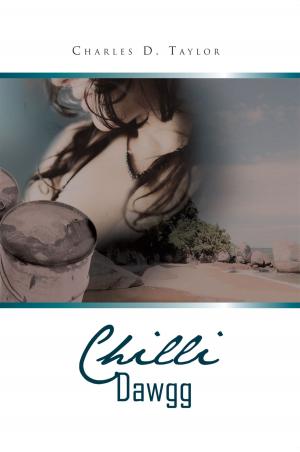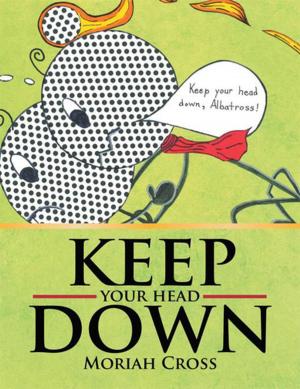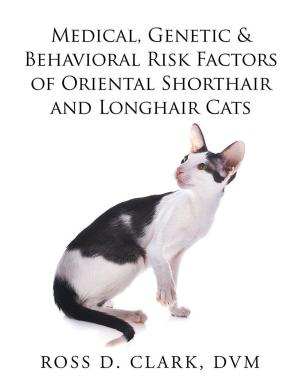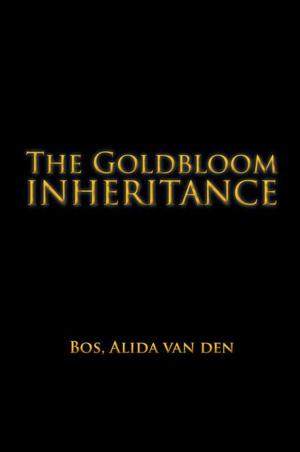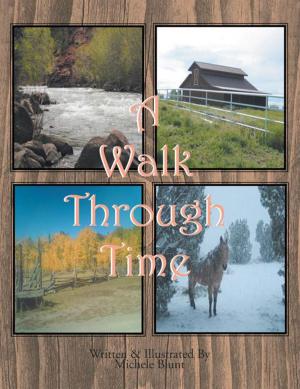The Formula for Happiness
Nonfiction, Health & Well Being, Self Help, Self Improvement, Motivational| Author: | Steven N. Czetli, Douglas R. Ramm | ISBN: | 9781462859160 |
| Publisher: | Xlibris US | Publication: | June 2, 2011 |
| Imprint: | Xlibris US | Language: | English |
| Author: | Steven N. Czetli, Douglas R. Ramm |
| ISBN: | 9781462859160 |
| Publisher: | Xlibris US |
| Publication: | June 2, 2011 |
| Imprint: | Xlibris US |
| Language: | English |
The Formula for Happiness is a self-help book which popularizes cutting-edge discoveries made by a board certified clinical psychologist about the nature of happiness and the behaviors and beliefs which enable people to become and remain happy. His groundbreaking way of understanding life and how to live has attracted worldwide attention since it was originally introduced to the scientific community in New Ideas in Psychology: an international journal of innovative theory in psychology in 1996. This is a peer reviewed journal produced by the worlds largest publisher of original scientific work and overseen by an editorial board consisting of faculty from departments of psychology in several of the worlds leading universities.
The Formula for Happiness presents this paradigm for the pursuit of happiness in a format which is entertaining and easily understood. It familiarizes readers with what they need to become and remain happy and how to proceed with their personal pursuit of happiness. Readers are provided with an objective means of measuring current levels of happiness as well as methods for increasing happiness and forecasting the effect potential courses of action are likely to have on their happiness at some future point in time.
The Formula for Happiness is the product of an innovative approach to the study of happiness which incorporates and surpasses research currently going on in the field of positive psychology in a number of important ways. It is based on generalizations emerging from the review of massive amounts of positive psychology research integrated with insights into the nature of happiness emerging from the fields of clinical and developmental psychology. It provides a comprehensive and coherent set of propositions about the nature of happiness which is different from anything available elsewhere in scientific and self-help literature today.
The Formula for Happiness is the first solidly scientifically-based self-help book to assert that happiness is primarily a matter of how people are situated with respect to the circumstances of their lives. Beyond making this assertion, it actually specifies exactly which circumstances make a difference in the of quality of human life. It precisely identifies what we require in order to become and remain happy.
The Formula for Happiness is also the first solidly scientifically-based self-help book to assert that happiness is a matter of choice. In addition to advancing this proposition, it provides readers with the only set of scientifically formulated guidelines for making choices which have happiness as their effect. It is the first book to present a set of principles for the pursuit of happiness which, like the principles of nutrition and health, are the product of scientific reasoning and research.
In showing readers how happiness is mainly a matter of circumstances and that circumstances are largely a matter of choice, The Formula for Happiness provides a new and much needed counterpoint to most of the thinking within psychology as well as much of what is available on the self-help market today. Instead of promoting the notion that happiness is a matter of what we think, how we perceive, or how we interpret things, The Formula for Happiness shows readers how quality of life is a matter of the way things really are and what we actually do. It is the first self-help book to provide a blueprint for constructing a durable high quality life.
In addition to presenting a pioneering paradigm for the pursuit of happiness, The Formula for Happiness contains a set of newly developed psychometric instruments. Readers can use these instruments to measure happiness, to develop goals for personal strategic planning, and to make momentous decisions such as what to major in at college, which career to pursue, whether to take a particular job, whether to remain in a romantic relationship, whether to get married, whether
The Formula for Happiness is a self-help book which popularizes cutting-edge discoveries made by a board certified clinical psychologist about the nature of happiness and the behaviors and beliefs which enable people to become and remain happy. His groundbreaking way of understanding life and how to live has attracted worldwide attention since it was originally introduced to the scientific community in New Ideas in Psychology: an international journal of innovative theory in psychology in 1996. This is a peer reviewed journal produced by the worlds largest publisher of original scientific work and overseen by an editorial board consisting of faculty from departments of psychology in several of the worlds leading universities.
The Formula for Happiness presents this paradigm for the pursuit of happiness in a format which is entertaining and easily understood. It familiarizes readers with what they need to become and remain happy and how to proceed with their personal pursuit of happiness. Readers are provided with an objective means of measuring current levels of happiness as well as methods for increasing happiness and forecasting the effect potential courses of action are likely to have on their happiness at some future point in time.
The Formula for Happiness is the product of an innovative approach to the study of happiness which incorporates and surpasses research currently going on in the field of positive psychology in a number of important ways. It is based on generalizations emerging from the review of massive amounts of positive psychology research integrated with insights into the nature of happiness emerging from the fields of clinical and developmental psychology. It provides a comprehensive and coherent set of propositions about the nature of happiness which is different from anything available elsewhere in scientific and self-help literature today.
The Formula for Happiness is the first solidly scientifically-based self-help book to assert that happiness is primarily a matter of how people are situated with respect to the circumstances of their lives. Beyond making this assertion, it actually specifies exactly which circumstances make a difference in the of quality of human life. It precisely identifies what we require in order to become and remain happy.
The Formula for Happiness is also the first solidly scientifically-based self-help book to assert that happiness is a matter of choice. In addition to advancing this proposition, it provides readers with the only set of scientifically formulated guidelines for making choices which have happiness as their effect. It is the first book to present a set of principles for the pursuit of happiness which, like the principles of nutrition and health, are the product of scientific reasoning and research.
In showing readers how happiness is mainly a matter of circumstances and that circumstances are largely a matter of choice, The Formula for Happiness provides a new and much needed counterpoint to most of the thinking within psychology as well as much of what is available on the self-help market today. Instead of promoting the notion that happiness is a matter of what we think, how we perceive, or how we interpret things, The Formula for Happiness shows readers how quality of life is a matter of the way things really are and what we actually do. It is the first self-help book to provide a blueprint for constructing a durable high quality life.
In addition to presenting a pioneering paradigm for the pursuit of happiness, The Formula for Happiness contains a set of newly developed psychometric instruments. Readers can use these instruments to measure happiness, to develop goals for personal strategic planning, and to make momentous decisions such as what to major in at college, which career to pursue, whether to take a particular job, whether to remain in a romantic relationship, whether to get married, whether

